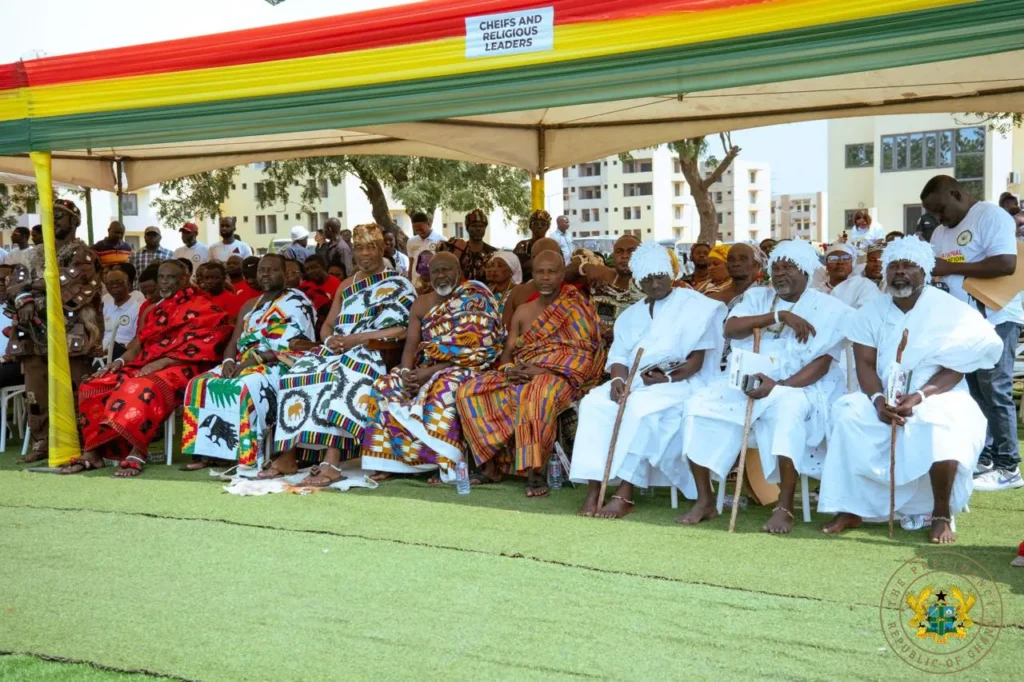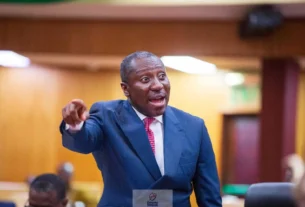Read also:
- Traders in Fear of Losing Livelihoods Over Alleged Eviction Plans
- Hearts of Oak Clinch 2025 Democracy Cup with 1-0 Win Over Great Olympics
- No Ticket Sales at Gate for Black Stars vs Mali Match
- Global Football Frenzy: 17 Teams Already Qualified for 2026 FIFA World Cup.
- Prof. Alidu Seidu Wins NDC Primary in Tamale Central Constituency.
President John Dramani Mahama has relaunched the National Sanitation Day campaign with a call on Ghanaians to restore traditional values of cleanliness and collective responsibility. Speaking at the event held on Saturday at the Institute of Local Government Studies in Accra, the President urged both citizens and institutions to take sanitation seriously as a moral, cultural, and developmental duty.
Cleanliness is deeply rooted in religious and cultural teachings, and the President reminded Ghanaians that every society has values that uphold the importance of cleanliness. “Whether you are a Christian, Muslim, or belong to African traditional religion, all of them uphold the saying that cleanliness is next to godliness. You cannot be a godly person if you live in filth,” he stressed. He recalled childhood experiences in Damongo where families woke up early to sweep and tidy their surroundings, lamenting that the tradition has broken down in many communities.

The President contrasted Ghana’s situation with countries like Japan and Singapore, where strict cultural values ensure public discipline. “You go to Japan and Singapore, you won’t see one single piece of paper or plastic on the ground. In Singapore, chewing gum is not even sold, and if you are caught with it, the punishment is lashes. That’s how seriously they take cleanliness,” he said.
To address the issue, President Mahama announced plans to reintroduce civic education in schools to instill discipline and responsibility in young people. “We are in discussion with the Ministry of Education to create a curriculum on courtesy and responsible citizenship. If we train our children from basic school through secondary school, they will not depart from it when they grow,” he explained. The President also advocated restoring some traditional authority to chiefs to enforce sanitation laws. “I believe that in every community there is a chief. If so, then we can put a sanitation court in the palace of the chief, working together with the district assembly. Persistent polluters should be brought before these courts and sanctioned,” he proposed.
Metropolitan, Municipal, and District Chief Executives (MMDCEs) were held accountable for keeping their areas clean. “Sanitation is your number one KPI. When we come to assess your performance, we will look at how you handled sanitation. You cannot say you lack resources, because we directed that 80% of the District Assembly Common Fund goes directly to the assemblies,” he said. The President also promised incentives for districts that prioritize sanitation. “I have asked the minister to put in place a system of awards for the cleanest districts. The cleanest districts will receive very handsome awards, and traditional authorities will also benefit,” he announced.

President Mahama commended youth-led groups championing cleanliness, particularly the Bastok Boys, and encouraged more volunteer initiatives. “Today, the spirit of volunteerism is dying. But I want to commend the Bastok Boys for their consistency. There should be many more groups like them,” he said. The President also linked sanitation to his government’s 24-hour economy agenda, suggesting that garbage collection and waste management should largely be carried out at night. “It doesn’t make sense for garbage trucks to compete with cars during rush hour. We must regulate so that refuse collection and cesspit emptying are done at night when the roads are freer,” he suggested.
In closing, the President emphasized collective responsibility in sustaining the initiative: “Not all of us should wait for government. We must all be watchdogs of sanitation and the environment. Together, we can build cleaner communities, cleaner towns, and cleaner cities.”




